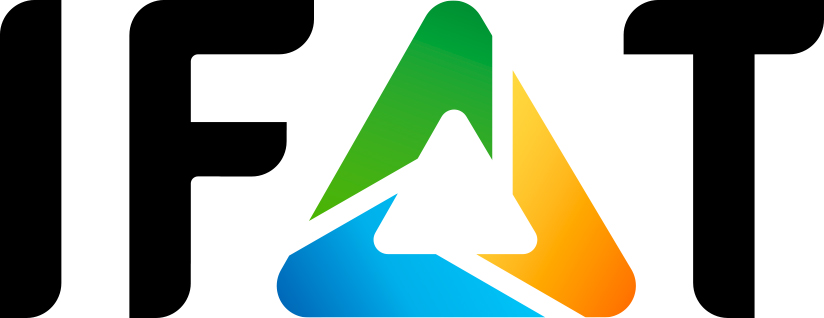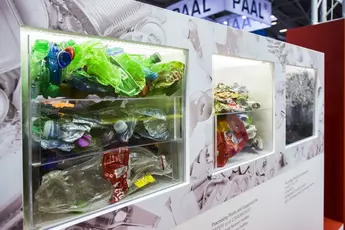IFAT impact: Coronavirus puts a stranglehold on plastics recycling
July 10, 2020
- Deterioration in prices for new goods; collapsing sales markets
- Call for minimum recyclate quota
- IFAT impact Panel Discussion, July 15, 2020, 10:00–12:00 (CET)
From collapsing sales markets to disruptions in export logistics: a whole range of effects of the coronavirus outbreak is making life hard for plastics recyclers. The new IFAT impact knowledge platform is aimed at helping the environmental industry identify the crisis’ scale and initiate the necessary countermeasures.
Germany’s dual collection and recycling system “Der Grüne Punkt” reports that in recent months plastic waste from German households has increased by around ten percent due to more people working in home offices and more frequent internet ordering. “For hygienic reasons, more packaging is used, and restaurants were temporarily only able to offer food as take-out—wrapped in plastics, of course,” explains Michael Wiener, CEO of “Der Grüne Punkt”. This additional volume does not necessarily mean a crisis—it could even be an opportunity for the companies that process the increased input and bring it back onto the market as recycled material. If it weren't for the extremely low oil price “that leads to a considerable price reduction in the production of new plastics, which recyclates simply cannot compete with,” says Peter Kurth, President of the Federal Association of the German Waste Management, Water and Raw Materials Industry (BDE).
Sales markets are collapsing
At the same time, production in the plastics processing industry using recyclates fell—or even came to a complete standstill in some cases. “This primarily affects companies in Germany, France and Italy, but also in the Middle East and South Americ. Plastics recyclers thus lose important markets,” Eric Rehbock, Managing Director of the Federal Association for Secondary Raw Materials and Waste Management (bvse) is concerned. While the packaging industry is still accepting a comparatively large number of recyclates, sales in the automotive industry are extremely weak and the civil engineering industry is also using noticeably fewer recycled products, according to Rehbock.
Disruptions in export logistics
In addition to the drop in prices for new goods and the decline in demand, the third market obstacle was—and still is—coronavirus-related disruptions in export logistics. “In this overall situation, plastics recycling is threatened by a downward spiral that could destroy all the successes achieved so far,” Wiener from “Der Grüne Punkt” fears. “There is a danger that this industry will lie broken when the economy starts to pick up again. This means significantly higher resource consumption, because the cycles are interrupted, and significantly higher carbon dioxide emissions, because new plastic is used instead of recycled plastic.”
Call for minimum recyclate quota
How can this scenario be averted? All the industry spokespeople mentioned above see this as a matter for politicians in the first place. Claims also include a minimum recyclate quota. According to the bvse, public procurement should finally be geared toward purchasing recycled products on a broad level. Great hopes rest on the European Green Deal, which aims for making the member states climate-neutral by 2050. “We will only achieve this goal if we tap the potential of the recycling industry,” BDE President Peter Kurth is sure. The circular economy service providers also see an opportunity in the EU Council Presidency that Germany has just taken over.
IFAT impact will address this topic
IFAT's new knowledge platform will address these issues at its events. The platform is kicked off by two digital events:
IFAT impact Panel Discussion, July 15, 2020, 10:00–12:00 (CET)
IFAT impact Business Summit, September 8–10, 2020
For more information about IFAT impact please visit us.
Downloads
75411

- PR Manager


